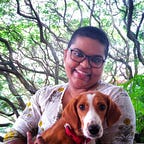On Covid, Collaboration and Kindness
We don’t have any public health experts at CSEI. How can we make a difference during a public health crisis like Covid 19? That’s the question we were asking ourselves.
The answer: relief work needs all kinds of expertise. What we could offer were our core strengths — our networks with entrepreneurs and donors, project management skills, and the ability to bring stakeholders together to solve bottlenecks.
The second Covid wave has ravaged the rural communities we work with. Due to a lack of livelihood opportunities in the forest belt, they usually venture out to coffee plantations or nearby towns for employment and return to their settlements every couple of months.
But with the Covid outbreak
- Illness and/or fear of infection have reduced forest dwellers’ access to the forest and its produce.
- They’re unable to find seasonal work outside the settlement or unable to return from their workplaces due to the lockdown.
- Family income and thereby money flow in the community has reduced.
- Quality of life and access to healthcare have been affected.
- Affected families have spent a large portion of their savings on treatment.
We have been supporting public health professionals at the Institute of Public Health (IPH), Vivekananda Girijana Kalyana Kendra (VGKK) and other organizations who are already working on the ground with district health authorities and public health centres (PHCs) in Chamarajanagar district. ATREE’s BR and MM hills field stations, where we have been working with the Soliga community for over 25 years are in this district.
Fluid Collaboration
Our first task was to understand where our networks and skills could be of use. The most obvious one was money. Following the lead from our partners on the ground, the CSEI/ATREE team in Bengaluru initiated a fundraiser to collect Indian and foreign donations to help the district administration set up 9 new Covid care clinics. (more on that here: bit.ly/2SMB2sW).
In parallel, through this consortium, we identified unmet needs from the public health authorities and district officials on the ground. Other than the medical equipment needed to set up Covid care clinics, Covid care kits emerged as a requirement. These kits with essentials like masks, sanitizers, gowns, and toothpastes are given to Covid patients in Covid care centres and home isolation as advised by local authorities.
Simultaneously we started another process — collecting verified vendor quotes — for oxygen cylinders, heart rate monitors, oximeters, and oxygen concentrators among other items for purchase by authorities. Volunteers from the Mumbai office of the World Resources Institute (WRI), generously volunteered their time in sourcing leads of vendors, who had stock.
We also started reaching out to our network of donors for in-kind donations. Kusum Pai from Social Venture Partners put us in touch with the Indic Heritage Foundation Charitable Trust. The 1000 Covid care kits they funded were delivered this week. Rohini Nilekani Philanthropies offered to fund a community health coordinator.
Then there were the many generous donors and leads sourced via Twitter. First Foundation was one such donor who donated 7 oxygen concentrators directly to the hospitals. We also reached out to Thejesh GN of Data Meet, who volunteered his time to help set up the official asset tracking software system for the district.
Heartwarming Kindness
Meanwhile, strengthening our faith in networks, one of our colleagues, Aparna, found a senior executive at Duroflex in her apartment’s WhatsApp group, who was willing to donate beds. We connected with their team and they delivered 225 beds to Chamarajanagar within five days!
We had promised these 225 Duroflex beds to VGKK. But it was soon clear that there was a larger inflow of patients in the district and taluk hospitals, where IPH works and that more beds would be needed there. VGKK recognizing this generously shared the consignment with IPH! In the middle of such an all-consuming crisis, this kind gesture really raised our spirits.
Our Learnings
- Money is not the only way to contribute. We work with indigenous communities that have poor access to resources. Beyond monetary and in-kind support, our big contribution was time.
- We need to learn to ask for help. There are always people willing to support good causes.
- Make our connections work. ATREE as a trusted entity is able to use our networks to speed up the supply chain and deliver life-saving supplies to those who need it the most.
- People are kind. This has been our sweetest learning. VGKK, though in dire need of supplies themselves, shared the 225 beds promised to them with IPH.
If you would like to get involved, consider making a donation to our fundraiser on GiveIndia (bit.ly/2SMB2sW). To make in-kind contributions, reach out to Sandeep Hanchanale at sandeep.hanchanale@atree.org.
